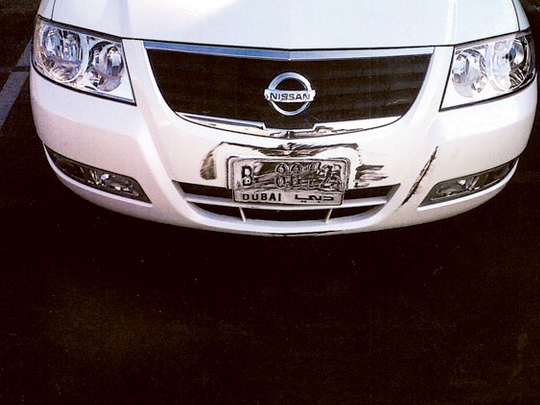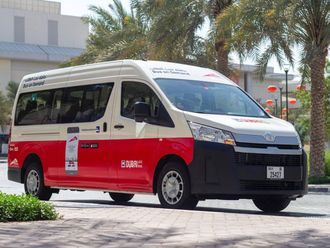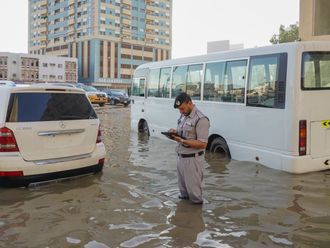
Dubai: Dubai Police are on the lookout for motorists attempting to hide their car plate numbers in order to avoid traffic fines, a senior police official said yesterday.
Colonel Saif Muhair Al Mazroui, acting director of Dubai Police Traffic Department, told Gulf News yesterday that one million cars are registered in Dubai alone and an almost equal number from other emirates and beyond pass through Dubai roads every day.
He said police had impounded 133 vehicles in the past three months after finding that owners had attempted to conceal the registration numbers to escape traffic radars. “Some of the vehicles, especially the heavy-duty trucks, buses and vans — whose speed limit on roads must not exceed 80 to 100 kilometre per hour — try to hide the plate numbers in order to avoid the radar cameras when they speed up,” he said.
“In 2009, we established the investigation team that works on tracking all those unclear plate numbers being caught by the radars,” he said.
Al Mazroui said that there are different ways to conceal plate numbers. Some people put two plate numbers one on top of another, while some scratch the plate number and still others remove some numbers altogether or fix stickers on the code of the plate number, he said.
“Some drivers bend the plate number on the side and others remove one number or they remove the code number or they may put nail polish on the code number. Others use stolen plate numbers or plate numbers that belong to some other cars,” he said.
Tampered plates make it difficult for speed radar cameras to capture proper plate numbers, he said.
“When a plate number of a speeding vehicle is not clear, then the investigation team tracks the car,” he said, adding that police also get in touch with agencies selling vehicles being investigated.
“There are many ways to find the owner of the vehicle,” the official said.
Police investigations to date suggest that those attempting to hide their plate numbers would have run up many traffic fines.
If the plate numbers have been altered accidentally and the owner can provide a satisfactory explanation as to the cause of the damage, police will only ask that accumulated fines be paid, he said.
It’s a different story, however, if the vehicle owner cannot explain unusual alterations to registration plates. “If it is on purpose, then the case is transferred to public prosecutor and to the court,” Al Mazroui said. He said all the accumulated fines will also be collected from the offender.
He said two days ago the investigation team was able to apprehend a person who had cut off a small portion of the plate number. “That person thought that police will not find out what he did; his fines exceeded Dh9,000 and he paid it.”
Another recent case involved a motorist who had deliberately bent his car plate number to one side so that three digits were effectively hidden from view with only two clearly visible. “The number which was clocked by the radar belongs to a high-profile person,” he said. Investigations showed that the person concerned had run up several fines with the tampered plate number and his fines exceeded Dh33,355. “We were able to get all the fines too.”
He added: “Another case involved a driver who fixed a sticker on the code number and it was difficult to read the digits on the plate number. But his car showed in our cameras from the back and he was summoned to police to pay all the fines issued to him — which exceeded Dh 23,000,” he said.
“Another case involved a driver who hid the plate number by pushing the plate number a little bit under the bumper. He was caught by our team and he paid Dh50,000 in fines,” Al Mazroui said.
He pointed out that Dubai witnesses a lot of traffic on a daily basis, making it difficult to track offending motorists given the sheer volume of cars on the roads. “Dubai is located in the middle of the country. Vehicles cross the emirate every day from other emirates and the Dubai Police traffic department does its best to reduce the traffic and to reduce traffic accidents, protecting people’s life and also hunting for the offenders,” Al Mazroui said.
He said that 100 traffic police and undercover police vehicles patrol Dubai roads each day. “Traffic police are working three shifts,” he said.










